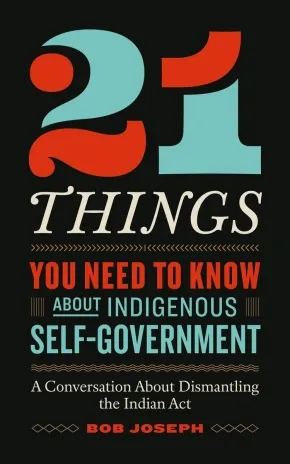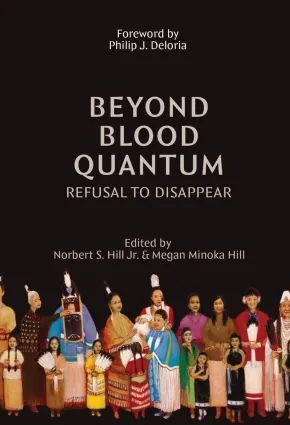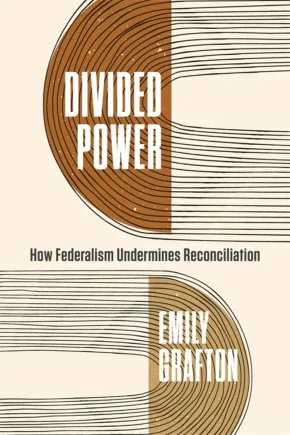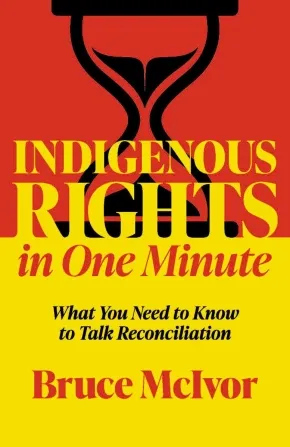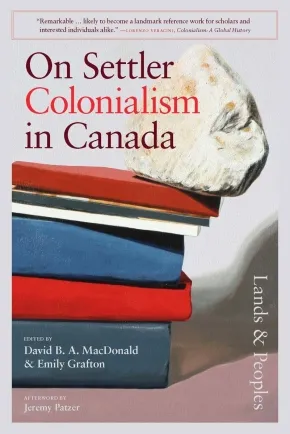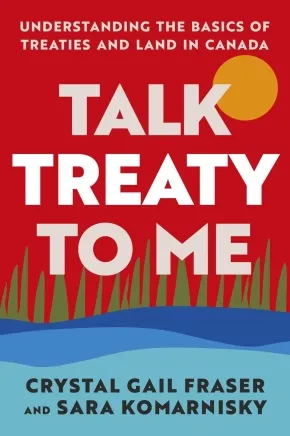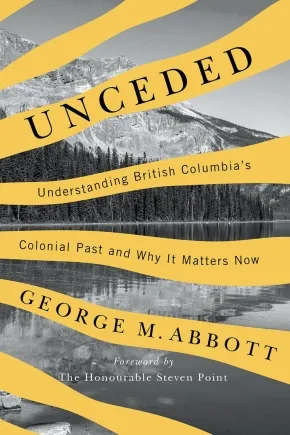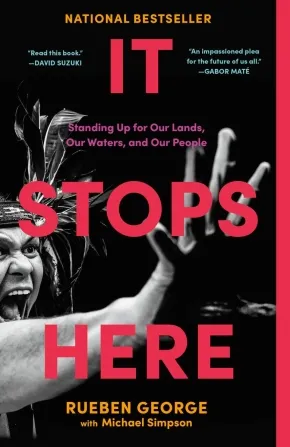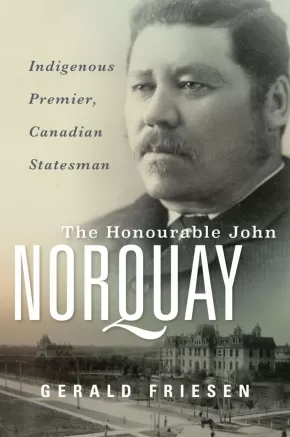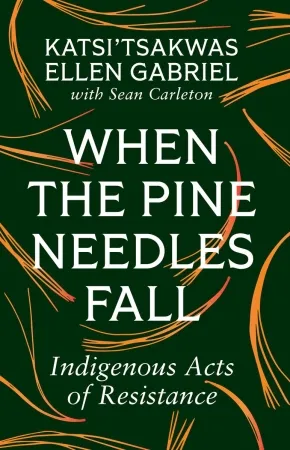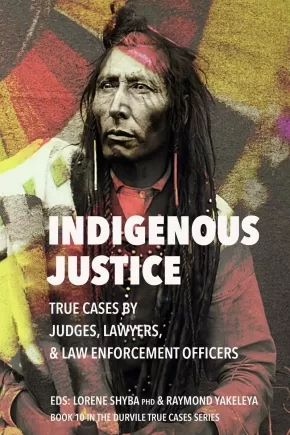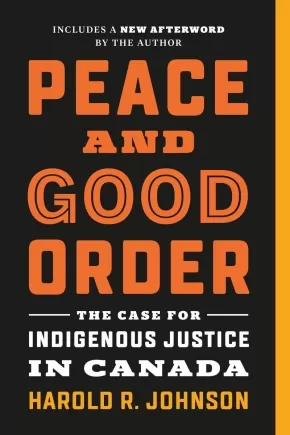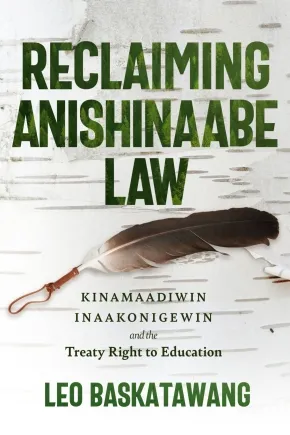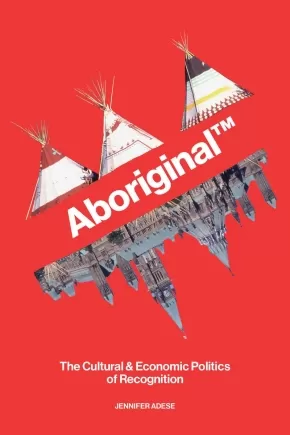Indigenous Politics, Law, and Justice
Synopsis:
From the bestselling author of 21 Things™ You May Not Know About the Indian Act comes a powerful new book on dismantling the Indian Act and advancing Indigenous self-governance.
Bob Joseph’s 21 Things™You May Not Know About the Indian Act captured the attention of hundreds of thousands of Canadians by shining a light on the Indian Act and the problems associated with it. In that book, readers learned that the Consolidated Indian Act of 1876 has controlled the lives of Indigenous Peoples in Canada for generations, and despite its objective to assimilate Indians into the economic and political mainstream, it has had the opposite effect: segregation. They live under different laws and on different lands.
People came away from that book with questions such as "Can we get rid of the Indian Act?" and "What would that look like? Would self-government work?" These are timely questions, given that 2026 will mark 150 years since the Consolidated Indian Act of 1876. The short answer to these questions is, yes, we can dismantle the Act, and there are current examples of self-government arrangements that are working.
With his trademark wisdom, humility, and deep understanding, Bob Joseph shows us the path forward in 21 Things™ You Need to Know About Indigenous Self-Government: A Conversation About Dismantling the Indian Act, in which Indigenous self-governance is already happening and not to be feared—and negotiating more such arrangements, sooner rather than later, is an absolute necessity.
21 Things™ You Need to Know About Indigenous Self-Government: A Conversation About Dismantling the Indian Act is a call to action. Join the conversation now.
Additional Information
200 pages | 5.00" x 8.00" | Paperback
Synopsis:
In Beyond Blood Quantum, voices from Indian Country convey the insidious impacts of the Indian Reorganization Act confronting the existential and pragmatic questions facing many Native Nations to determine who is—and who is not—a citizen. The voices of poets, parents, academics, activists, educators, young adults, and elders prompt conversations in consideration of shared cultural values and lived realities outside of the limited confines of blood quantum.
Both informational and poetic, Beyond Blood Quantum: Refusal to Disappear is a guide for conversation in-community and a songline of voices grappling with contemporary Native identity and the sovereignty inherent in defining citizenship with analysis softened by appreciation for kin, land, and promises to future generations from the descendants of generations who continue to resist, who refuse to disappear.
Reviews
“The tough issues of Native American identity come from within our communities as well as the harmful legacy of oppressive federal Indian policy. From the rise in “pretendians” to the fetishization of Native culture, contributors allow readers to explore the complexities of what it means to belong to a Tribe/Native Nation, according to their own customs and governance." —Karen Diver, Senior Advisor to the President for Native American Affairs at the University of Minnesota, Former Chairwoman, Fond du Lac Band of Lake Superior Chippewa, and Former Special Assistant to President Obama for Native American Affairs
"Our elders teach us that no man, or government, not even the most powerful nation in the world can take away all that defines who we are as Indigenous people—that the Creator gifted to our foremothers and forefathers at the time of Creation—but ourselves. They say that if we are not mindful of our past experiences of our foremothers and forefathers surviving every conceivable policy and laws imposed upon our people, generation after generation, we can at some point in our journey be capable of becoming our own worst enemy. When we internalize the oppression as exhibited by this nation upon our people, and internalize that oppression, we can become the oppressors. The elders warn and prophesied that when that happens, it will be the beginning of the end of us. It is deviating from our core values as gifted to us by our Creator as the deepest expression of love for us. Blood quantum is the epitome of this departure from the Original Instructions of embracing all sacred beings that our children represent so that our lifeways will continue and thrive. The elders say, they are the sacred beings, gifts from the Creator so that we shall continue as a People. The use of blood, our lifeline, to define our relations and our connections ironically in this time of self determination could be the cause of our end. What the government designed, we shall complete. This cannot be the end of our journey.” —Regis Pecos
“A testament to the refusal to disappear and inherent Indigenous sovereignty, Beyond Blood Quantum offers profound insights and reflections on the path forward.” —Wayne Ducheneaux
“Tribal citizens must become informed of where we are and where we are going on the explosive issue of blood quantum. The chapters in this book are a tool for self-education and constitute possible road maps for the future of Indian nations.”—Henrietta Mann
“Blood quantum is an issue that all tribes need to be aware of as they exercise their sovereign right to set their membership standards.” —John Echohawk
Additional Information
288 pages | 6.00" x 9.00" | Paperback
Synopsis:
Reconciliation, as set out by the Truth and Reconciliation Commission, is a process of understanding the Canadian state's genocide against Indigenous Peoples and creating a new relationship between Indigenous Peoples and settlers based on mutual respect and dignity. Given the racism and paternalism embedded in the Canadian state and related institutions, building such a relationship is a monumental task, but in addition, there is a major structural roadblock in the way: federalism, the political system that organizes Canadian governance.
Divided Power argues that Canada’s system of federalism, rooted in settler colonialism, has dispossessed Indigenous Peoples for settler benefit. Far from being a neutral, balanced way to distribute responsibilities and powers, the division between the state and provinces and territories obstructs Indigenous Peoples’ agency and governance. Under such coercive political exclusion, how can truth and reconciliation be fully achieved? Emily Grafton meticulously traces the ways that federalism limits the potential for reconciliation and proposes alternative power-sharing models.
Guiding readers through the terrain of debate, Grafton deftly and accessibly merges a political analysis of federalism with a clear assessment of settler colonialism to argue that reconciliation will be incomplete for as long as the current division of powers persists. Divided Power points to a promising approach to holding the Canadian state responsible for integrating the principles of truth and reconciliation into its very foundation.
Reviews
“Emily Grafton explores Canadian federalism – not the usual division of powers between the federal and provincial governments, but between the colonized and the colonizer. Federalism, Grafton argues, was informed by Indigenous political frameworks but has been torqued by colonial assumptions about Indigenous inferiority so as to require colonial dominance and Indigenous subordination. This book is a useful antidote to the complacent endorsement of the settler state status quo, so prevalent in scholarship and in politics.” - Joyce Green, Ktunaxa Nation, Professor Emerita, University of Regina; Elder-Auntie, CPSA Reconciliation Committee
“Grafton exposes the evolution and coloniality of Canadian federalism in its unjust and mundane efforts to diminish Indigenous sovereignties. Divided Power is a tour de force of alternatives, and you’ll never think of federalism the same way after reading it!” - Ajay Parasram, author of Pluriversal Sovereignty and the State
Additional Information
192 pages | 6.00" x 9.00" | Paperback
Synopsis:
Internationally renowned as an expert in Aboriginal law and an advocate for Indigenous rights, Bruce McIvor delivers concise, essential information for Canadians committed to truth and reconciliation.
A shortage of trustworthy information continues to frustrate Canadians with best intentions to fulfill Canada’s commitment to reconciliation with Indigenous Peoples. To meet this demand, lawyer and historian Bruce McIvor provides concise, plain answers to 100 essential questions being asked by Canadians across the country.
During his nearly three decades advocating for Indigenous rights and teaching Aboriginal law, McIvor has recorded the fundamental questions that Canadians from all corners of society have asked to advance reconciliation: Why do Indigenous people have special rights? What is the Doctrine of Discovery? Who are the Métis? Why was the Calder decision important? What is reconciliation? McIvor supplies the answers Canadians are looking for by scrapping the technical language that confuses the issues, and speaks directly to everyone looking for straight answers. Throughout, McIvor shares his perspective on why reconciliation as envisioned by the courts and Canadian governments frustrates Indigenous people and what needs to change to overcome the impasse. McIvor’s explanations of complex legal issues demonstrate a unique mix of a deep knowledge of the law, the ability to write clearly and concisely, practical experience from the frontlines of advocating for First Nations in courtrooms and at negotiation tables across the country, and a profound passion for justice rooted in his work and personal history.
To ensure the country’s reconciliation project progresses from rhetoric to reality, ordinary Canadians need straightforward answers to fundamental questions. McIvor provides the answers and context to support a thoughtful and respectful national conversation about reconciliation and the fulfillment of Canada’s commitment to a better future for Indigenous people.
Additional Information
208 pages | 5.50" x 8.50" | 25 colour and b&w photographs | Paperback
Synopsis:
An unflinching examination of the impacts of settler colonialism from first contact to the contemporary nation state.
On Settler Colonialism in Canada: Lands and Peoples is the first installment in a comprehensive collection investigating settler colonialism as a state mandate, a structuring logic of institutions, and an alibi for violence and death. The book examines how settler identities are fashioned in opposition to nature and how eras of settler colonialism have come to be defined. Scholars and thinkers explore how settlers understood themselves as servants of empire, how settler identities came to be predicated on racialization and white supremacy, and more recently, how they have been constructed in relation to multiculturalism.
Featuring perspectives from Indigenous, Black, mixed-race, and other racialized, queer, and white European-descended thinkers from across a range of disciplines, On Settler Colonialism in Canada: Lands and Peoples addresses the fundamental truths of this country. Essays engage contemporary questions on the legacy of displacement that settler colonialism has wrought for Indigenous people and racialized settlers caught up in the global implications of empire.
Asserting that reconciliation is a shared endeavor, the collection’s final section exposes the myth at the heart of Canada’s constitutional legitimacy and describes the importance of affirming Indigenous rights, protecting Indigenous people (especially women) from systemic violence, and holding the Canadian settler nation state—which has benefited from the creation and maintenance of genocidal institutions for generations—accountable.
Reviews
“Remarkable...likely to become a landmark reference work for scholars and interested individuals alike.” — Lorenzo Veracini, author of Colonialism: A Global History
“Positive shared futures with all our relations depend on perpetual truth-telling and (re)conciliation. This book guides us through the dark and toward the light.”— David Garneau, author of Dark Chapters
"A thought-provoking and insightful ‘must read’ for all those seeking reconciliation based on truth, justice, and accountability.” — Paulette Regan, author of Unsettling the Settler Within and former research director for the Truth and Reconciliation Commission of Canada
"The truth will set you free, but first it will piss you off! That observation best describes the power of this fabulous book that every Canadian should read.”— Val Napoleon, Professor and Law Foundation Chair of Indigenous Justice and Governance, University of Victoria
Educator & Series Information
This book is part of the On Settler Colonialism in Canada series.
Table of Contents
Acknowledgements
Contributor Biographies
David B MacDonald and Emily Grafton, “Introduction: Critical Engagements with Canadian Settler Colonialism: Colonization, Land Theft, Gender Violence, Imperialism, and Genocide”
Section 1: Considering Violence and Genocide in the Canadian Settler State
Karine Duhamel, “I feel like my spirit knows violence: interrogating the language of temporality and crisis for missing and murdered Indigenous women, girls, and LGBTQ people.”
James Daschuck, “The Battleford hangings and the rise of the settler colonial state.”
David B MacDonald, “Match and Exceed: Why Recognizing Genocide in Canada is Only the First Step in Promoting Indigenous Self-Determination.”
Malissa Bryan, “Unsettled Arrivants: Imagining Black & Indigenous Solidarity Under Settler Colonialism.”
Angie Wong, “Labouring and Living in Canada: Early Chinese Arrivants and Making Settler Colonial Canada.”
Section 2: Logics of Empire, Colonialism, and Unsettlement
Liam Midzain-Gobin, “Imperial circulation, implicatedness and co-conspiracy, racialized interruptions of settler colonialism in Canada.”
Peter Kulchyski, “A Contribution to Periodizing Settler Colonial History in Canada”
Ajay Parasram, “Learning Settler Colonialism: Double Diaspora and Transnational Imperial Refraction.”
Andrew Woolford, “Settler natures: becoming settler against water.”
Section 3: Settler colonial society: Relating, Reckoning, and Unreconciliation
Chris Lindgren and Michelle Stewart, “Reckoning and Unreconciled: Neil Stonechild, Starlight Tours, and Racialized Policing in the Settler State.”
Fazeela Jiwa, “On shitheads and revolutionaries: claiming my displaced kin.”
Jerome Melancon, “Relying upon the Colonial Project: Francophone Communities in Minority Settings within the Bilingual Settler Colonial State.”
Desmond McAllister, “Straddling Different Worlds.”
Bernie Farber and Len Rudner, “B’Chol Dor v’Dor: In each and Every Generation.”
Section 4: Asserting Indigenous Knowledges in settler colonial Canada
Solomon Ratt (poetry) “stolen childhood” and “asastîwa – They pile up”
Joyce Green, “Being and Knowing Home.”
Rebecca Major, “Surviving Institutions in Canada’s Polite Society.”
Paul Simard Smith, “On the Illegitimacy of the Canadian Constitutional Order.”
Emily Grafton, “Resistance and Resurgence: Asserting Indigenous Peoples’ Rights in Settler Colonial Canada.”
“Afterword,” Jeremy Patzer
Additional Information
384 pages | 6.02" x 9.01" | Paperback
Synopsis:
An essential and easy-to-read guide to treaties, Indigenous sovereignty, and land for all Canadians
Treaties cover much of Canada. Some were established thousands of years ago, with land and animals, and others date back to the time when Europeans first arrived in North America. These agreements make it possible for all of us to live, work, play, and profit on these lands. Additionally, treaties have profoundly shaped the relationship between Indigenous and non-Indigenous people. In Talk Treaty to Me, Crystal Gail Fraser and Sara Komarnisky untangle the complexities of treaties and set a path forward for greater understanding of all our roles, rights, and responsibilities. In this accessible, clear, and concise book, they discuss:
· Treaties among and between Indigenous Peoples
· The history of treaty-making between Indigenous Peoples and Britain, then Canada, from the very beginning to the present day
· Concepts like Métis scrip, modern land claims, Indigenous sovereignty, and unceded territory
· The (dis)honouring of treaties and the role of Canadian settler colonialism
· How the creation of Canadian borders interrupts Indigenous sovereignty and nationhood
· Important insights from gendered and queer perspectives on treaty and land
· The politics of land acknowledgements
· Reconciliation and Land Back movements
And more.
With a quick-reference timeline, maps, and black-and-white photographs throughout, Talk Treaty to Me concludes with a call to action and specific, tangible steps that all of us can take every day to support reconciliation.
Additional Information
256 pages | 5.25" x 8.00" | 40 b&w photos, spot illustrations & maps | Paperback
Synopsis:
In British Columbia, land acknowledgements often refer to “unceded territory.” Yet many people remain uncertain about the history behind these words or their implications for the future of the province.
Unceded reveals the BC government’s history of injustice toward First Nations, providing the context for understanding the province’s current reconciliation efforts, including modern treaty negotiations. Treaty commissioner George M. Abbott combines archival research with a former cabinet minister’s insider perspective on government to chronicle over 150 years of BC-Indigenous relations. Abbott’s account details how early government officials refused to negotiate treaties and instead coerced First Nations onto small and scattered reserves while granting settlers access to vast tracts of land. Despite sustained Indigenous resistance, the situation only worsened as non-Indigenous demands for land and natural resources increased in the decades that followed.
It was only after several Supreme Court decisions affirmed Indigenous land rights that BC sat down at the negotiating table. More recently, the province has taken notable steps toward reconciliation, concluding modern treaties and passing legislation that acknowledges Indigenous rights. As Abbott shows, overcoming the legacy of colonialism is no small task, but achieving justice is worth the effort it takes.
This book is for readers of BC history, those who follow provincial politics, or anyone invested in the future of British Columbia. It is essential reading for elected officials and policy makers and will also appeal to scholars and students of Canadian history, political science, and Indigenous-settler relations.
Reviews
"Unceded is an excellent account of the relationship between First Nation groups and the government of British Columbia. It is well-researched and enriched by interesting insights from George Abbott’s own involvement in more recent developments as a member of the provincial cabinet."— Jim Reynolds, author of Canada and Colonialism and former general counsel to the Musqueam First Nation
"I wish to thank George Abbott for his book about our colonial past. It is only with a better understanding of our history that we can have a better chance of creating a brighter future for First Nations in British Columbia."— From the foreword by the Honourable Steven Point, Grand Chief of the Stó:lō and BC’s first Indigenous Lieutenant-Governor
Additional Information
280 pages | 6.00" x 9.00" | Paperback
Synopsis:
A personal account of one man’s confrontation with colonization that illuminates the philosophy and values of a First Nation on the front lines of the fight against an extractive industry, colonial government, and threats to the life-giving Salish Sea.
It Stops Here is the profound story of the spiritual, cultural, and political resurgence of a nation taking action to reclaim their lands, waters, law, and food systems in the face of colonization. In deeply moving testimony, it recounts the intergenerational struggle of the Tsleil-Waututh Nation to overcome colonial harms and the powerful stance they have taken alongside allies and other Indigenous nations across Turtle Island against the development of the Trans Mountain Pipeline—a fossil fuel megaproject on their unceded territories.
In a firsthand account of the resurgence told by Rueben George, one of the most prominent leaders of the widespread opposition to the Trans Mountain Pipeline expansion, It Stops Here reveals extraordinary insights and revelations from someone who has devoted more than a decade of his life to fighting the project. Rueben shares stories about his family’s deep ancestral connections to their unceded lands and waters, which are today more commonly known as Vancouver, British Columbia and the Burrard Inlet. He discloses how, following the systematic cultural genocide enacted by the colonial state, key leaders of his community, such as his grandfather, Chief Dan George, always taught the younger generations to be proud of who they were and to remember the importance of their connection to the inlet.
Part memoir, part call to action, It Stops Here is a compelling appeal to prioritize the sacred over oil and extractive industries, while insisting that settler society honour Indigenous law and jurisdiction over unceded territories rather than exploiting lands and reducing them to their natural resources.
Additional Information
288 pages | 5.13" x 7.98" | 31 b+w images throughout | Paperback
Synopsis:
The life and times of the Premier from Red River
John Norquay, orphan and prodigy, was a leader among the Scots Cree peoples of western Canada. Born in the Red River Settlement, he farmed, hunted, traded, and taught school before becoming a legislator, cabinet minister, and, from 1878 to 1887, premier of Manitoba.
Once described as Louis Riel's alter ego, he skirmished with prime minister John A. Macdonald, clashed with railway baron George Stephen, and endured racist taunts while championing the interests of the Prairie West in battles with investment bankers, Ottawa politicians, and the CPR. His contributions to the development of Canada's federal system and his dealings with issues of race and racism deserve attention today.
Recounted here by Canadian historian Gerald Friesen, Norquay's life story ignites contemporary conversations around the nature of empire and Canada's own imperial past. Drawing extensively on recently opened letters and financial papers that offer new insights into his business, family, and political life, Friesen reveals Norquay to be a thoughtful statesman and generous patriarch. This masterful biography of the Premier from Red River sheds welcome light on a neglected historical figure and a tumultuous time for Canada and Manitoba.
Reviews
"The Honourable John Norquay is a magisterial biography that brings Norquay out of the historical shadows to a prominent place among the major figures of nineteenth century Canada. One of the most important historical studies of this decade, Norquay is a model of how superb historical scholarship can make us better understand both past and present." — John English
"This is a beautifully written, extremely accessible, but obviously meticulous scholarly tome. Friesen wrangles a wide variety of facts into a compelling narrative." — Chris Andersen
"The Honourable John Norquay is a magnificent book. Friesen meticulously documents Norquay's many accomplishments, larger-than-life character, and charisma. He paints a picture of a negotiator and orator who ably uses humour and personal stories to win support, especially in the midst of the racism he faced." — Gary Doer, Premier of Manitoba, 1999-2009
Educator Information
Table of Contents
Introduction
Ch 1: “A Merry Prankish Youngster,” 1841–58
Ch 2: Red River Family, 1859–70
Ch 3: “The Transfer Made Us Wise,” the 1870s
Ch 4: Public Life: An Introduction, 1871–74
Ch 5: Senior Minister, 1875–78
Ch 6: Premier, 1879
Ch 7: Boom Times and Crash, 1880–January 1883
Ch 8: “Chief,” 1883–February 1885
Ch 9: “An Unfortunate Family Difference,” 1885
Ch 10: Vindication, 1886
Ch 11: Defiance, 1887
Ch 12: Downfall, November–December 1887
Ch 13: Dénouement, 1888–89
Conclusion
Acknowledgements
Abbreviations
Keywords
A Note on Sources
Notes
Bibliography
Index
Additional Information
619 pages | 6.12" x 9.25" | b&w illustrations, maps, index, bibliography | Hardcover
Synopsis:
The Spaces In Between examines prospects for the enhanced practice of Indigenous political sovereignty within the Canadian state. As Indigenous rights include the right to self-determination, the book contends that restored practices of Indigenous sovereignty constitute important steps forward in securing better relationships between Indigenous peoples and the Canadian state.
While the Canadian state maintains its position of dominance with respect to the exercise of state sovereignty, Tim Schouls reveals how Indigenous nations are nevertheless carving out and reclaiming areas of significant political power as their own. By means of strategically acquired legal concessions, through hard-fought political negotiations, and sometimes through simple declarations of intent, Indigenous nations have repeatedly compelled the Canadian state to roll back its jurisdiction over them. In doing so, they have enhanced their prospects for political sovereignty within Canada. As such, they now increasingly occupy what Schouls refers to metaphorically as “the spaces in between.”
The book asserts that occupation of these jurisdictional “spaces in between” not only goes some distance in meeting the requirements of Indigenous rights but also contributes to Indigenous community autonomy and well-being, enhancing prospects for reconciliation between Indigenous peoples and the Canadian state.
Reviews
“The Space In Between is a vital resource for understanding how the concept of sovereignty has helped and hindered the Indigenous emancipation project in Canada. Schouls is a gifted educator, who shares his astute insight and considerable knowledge of Indigenous law and politics in a highly accessible and common sense fashion that will be of interest to students, instructors and the broader Canadian public.” — Dimitrios Panagos, Associate Professor of Political Science, Memorial University of Newfoundland
“The Spaces In Between addresses many of the key issues that are most salient in Indigenous–state relations. Tim Schouls presents a good balance between exploring theoretical concepts and examining case studies to contextualize and show how important debates play out in real-world settings. This book will serve as an essential resource for many universities and colleges seeking to build more Indigenous programming and courses, as per the Truth and Reconciliation Commission’s recommendations.” — Minh Do, Assistant Professor of Political Science, University of Guelph
“Drawing on a range of themes and issues, The Spaces In Between provides students with a strong academic grounding in Indigenous politics and Indigenous–settler relations. It articulates the ways Indigenous peoples have opened space within Canadian state claims to sovereignty and filled it with their own articulations and practices of sovereignty. Well-written and accessible, this book presents complex information in an eminently readable and engaging way, offering a clear articulation for a possible path forward for Indigenous–settler relations.” — Liam Midzain-Gobin, Assistant Professor of Political Science, Brock University
Educator Information
Table of Contents
Introduction: Claiming the Spaces In Between
1. Contending Sovereignties: Prospects for Coexistence
2. Identity Politics: Citizenship and Belonging
3. Policy: From Political Sovereigns to Colonial Subjects
4. Policy: Signs of a Post-colonial Reality?
5. The Courts: Colonialism’s Constraints and Sovereignty’s Opportunities
6. Treaties Old: Sharing Lands and Resources
7. Treaties New: Landed Citizenship
8. Self-Government: Incremental Sovereignty
9. Partnerships: Shared Sovereignty, Shared Ventures
Conclusion: Occupying the Spaces In Between
References
Index
Additional Information
436 pages | 7.50" x 9.25"
Synopsis:
There have been many things written about Canada’s violent siege of Kanehsatà:ke and Kahnawà:ke in the summer of 1990, but When the Pine Needles Fall: Indigenous Acts of Resistance is the first book from the perspective of Katsi’tsakwas Ellen Gabriel, who was the Kanien’kehá:ka (Mohawk) spokesperson during the siege. When the Pine Needles Fall, written in a conversational style by Gabriel with historian Sean Carleton, offers an intimate look at Gabriel’s life leading up to the 1990 siege, her experiences as spokesperson for her community, and her work since then as an Indigenous land defender, human rights activist, and feminist leader.
More than just the memoir of an extraordinary individual, When the Pine Needles Fall offers insight into Indigenous language, history, and philosophy, reflections on our relationship with the land, and calls to action against both colonialism and capitalism as we face the climate crisis. Gabriel’s hopes for a decolonial future make clear why protecting Indigenous homelands is vital not only for the survival of Indigenous peoples, but for all who live on this planet.
Awards
- 2025 Canadian Historical Association Indigenous History Book Prize
- 2025 Errol Sharpe Book Prize
- 2025 Wilson Institute Book Prize
Reviews
“When the Pine Needles Fall is a profound treatise and manifesto chronicling Haudenosaunee resistance to land theft by one of the most important Land Defenders of our time. Gabriel’s work is the book on Indigenous resistance I’ve been waiting for my whole life. It is a must-read for anyone concerned with the continuation of life on this planet.” — Leanne Betasamosake Simpson, co-author of “Rehearsals for Living”
“Katsi’tsakwas Ellen Gabriel’s words in When the Pine Needles Fall are gifts that serve as a beacon of light by igniting our hearts, minds, and spirits. Through her boundless wisdom grounded in healing work as a Land Defender on Turtle Island, she calls for fierce Indigenous resistance and radical global solidarity to put an end to root causes of oppression worldwide: capitalism, patriarchy, and settler colonialism. Gabriel reminds us that a more just, kind, and caring world—where all life is precious—is possible for the next seven generations, but only if we fight for it.” — Samir Shaheen-Hussain, MD, author of “Fighting for A Hand to Hold: Confronting Medical Colonialism against Indigenous Children in Canada”
“When the Pine Needles Fall is a remarkable and revelatory account of the 1990 siege of Kanehsatà:ke and Kahnawà:ke, when provincial, municipal, and national armed forces targeted these Mohawk communities. It is also one of the best first-hand accounts of Indigenous activism that I have ever read, relayed in moving and extraordinary form. An essential addition to contemporary First Nations history and the growing field of Indigenous Studies.” — Ned Blackhawk, Western Shoshone, author of “The Rediscovery of America: Native Peoples and the Unmaking of U.S. History”
“As a treatise on women and culture-based governance from a remarkable Haudenosaunee leader, When the Pine Needles Fall offers me hope and renewed energy. Through her life work, Ellen Gabriel demonstrates how to persevere, remain optimistic, and continue with creative and activist endeavours. The book effectively situates the ‘crisis’ within its centuries-long context, marking a tipping point for Canada while highlighting ongoing challenges. It also examines how mainstream narratives are constructed around Indigenous struggles, providing a comprehensive profile of Gabriel’s diverse contributions to Indigenous resistance and resurgence.” — Kim Anderson, author of“ Life Stages and Native Women: Memory, Teachings, and Story Medicine”
“Katsi’tsakwas Ellen Gabriel’s personal account of the 1990 siege of Kanehsatà:ke and Kahnawà:ke is a crucial contribution to our understanding of these dramatic events and of the political context of the time. Her lifetime dedication to the defence of Indigenous peoples and women’s rights is truly exemplary and constitutes an inspiration for generations to come.” — Bernard Duhaime, professor, Faculty of Political Science and Law, Université du Québec à Montréal
“In When the Pine Needles Fall, celebrated activist Katsi’tsakwas Ellen Gabriel gifts us with an expansive account of the 1990 siege of Kanehsatà:ke and Kahnawà:ke. This alone provides a captivating analysis of this seminal moment and its legacy within larger movements for Indigenous sovereignty on Turtle Island. But Gabriel, an artist, also paints the negative space, braiding her relationship to the land, Kanien’kehá:ka teachings, and the language with her tireless work against settler colonialism, extractive capitalism, and patriarchy. This essential book is an inspiring conversation reminding us that decolonization is world-building rooted in an ethics of relationality and care.” — Nazila Bettache, MD, MPH; assistant professor of medicine, Université de Montréal; social justice organizer and co-editor of “Reflections on Illness”
“I honour my sister whose words speak the truth. One of the most powerful quotes by Katsi’tsakwas is: ‘I’m a Kanien’kehá:ka woman who cares deeply about our land and I want a better future for the generations to come.’ Everything she speaks about in this book is directly connected to these words.” — Beverley Jacobs, CM, LLB, LLM, PhD; Kanien’kehá:ka, Bear Clan, Six Nations Grand River Territory; associate professor, Faculty of Law, University of Windsor
Educator Information
This book is included in the Indigenous Books for Schools database from the Association of Book Publishers of BC. It is recommended for Grades 11 and 12 for English Language Arts and Social Studies. The book's listing in the database provides this content warning: " Abuse, violence, residential schools, death."
Additional Information
280 pages | 5.50" x 8.50" | Paperback
Synopsis:
In the spirit of truth and reconciliation, judges, lawyers, and law enforcement officers write about working with First Nations, Métis, and Inuit Peoples through their trials and tribulations with the criminal justice system. The stories are a mix of previously published essays from the Durvile True Cases anthologies with an equal number of new chapters by legal and law enforcement professionals including Justice Thomas Berger (posthumous), Justice Nancy Morrison, Justice John Reilly, Senator Kim Pate, lawyers Eleanore Sunchild, Brian Beresh, and John L. Hill, and parole and police officers Doug Heckbert, Ernie Louttit, Val Hoglund, and Sharon Bourque.
Reviews
“I’m struck by how the True Cases series has a multiplicity of authentic perspectives that are able to be our proxy or conduit into amazing worlds... Stories that are happening in our community and to our neighbours that we should know about but don’t.” —Grant Stovers, CKUA Radio
Additional Information
288 pages | 6.00" x 9.00" | Paperback
Synopsis:
An urgent, informed, intimate condemnation of the Canadian state and its failure to deliver justice to Indigenous people by national bestselling author and former Crown prosecutor Harold R. Johnson. Now with a brand new foreward.
"The night of the decision in the Gerald Stanley trial for the murder of Colten Boushie, I received a text message from a retired provincial court judge. He was feeling ashamed for his time in a system that was so badly tilted. I too feel this way about my time as both defence counsel and as a Crown prosecutor; that I didn't have the courage to stand up in the courtroom and shout 'Enough is enough.' This book is my act of taking responsibility for what I did, for my actions and inactions." -- Harold R. Johnson
In early 2018, the failures of Canada's justice system were sharply and painfully revealed in the verdicts issued in the deaths of Colten Boushie and Tina Fontaine. The outrage and confusion that followed those verdicts inspired former Crown prosecutor and bestselling author Harold R. Johnson to make the case against Canada for its failure to fulfill its duty under Treaty to effectively deliver justice to Indigenous people, worsening the situation and ensuring long-term damage to Indigenous communities.
In this direct, concise, and essential volume, Harold R. Johnson examines the justice system's failures to deliver "peace and good order" to Indigenous people. He explores the part that he understands himself to have played in that mismanagement, drawing on insights he has gained from the experience; insights into the roots and immediate effects of how the justice system has failed Indigenous people, in all the communities in which they live; and insights into the struggle for peace and good order for Indigenous people now.
Additional Information
272 pages | 5.00" x 7.51" | B&W photo spread in text | Paperback
Synopsis:
A manifesto for the future of Indigenous Education in Canada
In Reclaiming Anishinaabe Law Leo Baskatawang traces the history of the neglected treaty relationship between the Crown and the Anishinaabe Nation in Treaty #3, and the Canadian government’s egregious failings to administer effective education policy for Indigenous youth—failures epitomized by, but not limited to, the horrors of the residential school system.
Rooted in the belief that Indigenous education should be governed and administered by Indigenous peoples, Baskatawang envisions a hopeful future for Indigenous nations where their traditional laws are formally recognized and affirmed by the governments of Canada. Baskatawang thereby details the efforts being made in Treaty #3 territory to revitalize and codify the Anishinaabe education law, kinamaadiwin inaakonigewin. Kinamaadiwin inaakonigewin considers education wholistically, such that it describes ways of knowing, being, doing, relating, and connecting to the land that are grounded in tradition, while also positioning its learners for success in life, both on and off the reserve.
As the backbone of an Indigenous-led education system, kinamaadiwin inaakonigewin enacts Anishinaabe self-determination, and has the potential to bring about cultural resurgence, language revitalization, and a new era of Crown-Indigenous relations in Canada. Reclaiming Anishinaabe Law challenges policy makers to push beyond apologies and performative politics, and to engage in meaningful reconciliation practices by recognizing and affirming the laws that the Anishinaabeg have always used to govern themselves.
Reviews
"Leo Baskatawang offers a passionate call for Indigenous self-determination and a reclamation of Anishinaabe education law and practice in raising up the next generation. This book can be used to envision a future that uses Indigenous treaties to drive systemic change in education."— Brittany Luby
Additional Information
240 pages | 6.00" x 9.00" | b&w illustrations, maps, index, bibliography | Paperback |
Synopsis:
In Aboriginal™, Jennifer Adese explores the origins, meaning, and usage of the term “Aboriginal” and its displacement by the word “Indigenous.” In the Constitution Act, 1982, the term’s express purpose was to speak to specific “aboriginal rights”. Yet in the wake of the Constitution’s passage, Aboriginal, in its capitalized form, became increasingly used to describe and categorize people.
More than simple legal and political vernacular, the term Aboriginal (capitalized or not) has had real-world consequences for the people it defined. Aboriginal™ argues the term was a tool used to advance Canada’s cultural and economic assimilatory agenda throughout the 1980s until the mid-2010s. Moreover, Adese illuminates how the word engenders a kind of “Aboriginalized multicultural” brand easily reduced to and exported as a nation brand, economic brand, and place brand—at odds with the diversity and complexity of Indigenous peoples and communities.
In her multi-disciplinary research, Adese examines the discursive spaces and concrete sites where Aboriginality features prominently: the Constitution Act, 1982; the 2010 Vancouver Olympics; the “Aboriginal tourism industry”; and the Vancouver International Airport. Reflecting on the term’s abrupt exit from public discourse and the recent turn toward Indigenous, Indigeneity, and Indigenization, Aboriginal™ offers insight into Indigenous-Canada relations, reconciliation efforts, and current discussions of Indigenous identity, authenticity, and agency.
Additional Information
272 pages | 6.00" x 9.00" | Paperback

